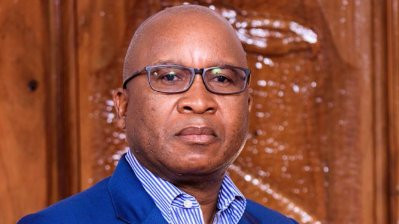
THE African Development Bank (AfDB) has awarded a R18 billion (US$1 billion) loan to Transnet, a South African state-owned company, to revamp the regional rail network, five years after its deal with the National Railways of Zimbabwe (NRZ) was terminated.
Transnet, a South African logistics group, in partnership with Diaspora Infrastructure Development Group, was awarded a US$400 million tender by authorities in 2017 to revamp the ailing NRZ.
However, due to prolonged financing and implementation issues among the parties involved, the deal was terminated in 2019 by the Zimbabwean government.
Under a new deal, AfDB disbursed US$1 billion to Transnet during the African Investment Forum held last week in Rabat, Morocco.
According to AfDB vice-president for private sector, infrastructure and industrialisation Solomon Quaynor, recapitalising Transnet would improve the railway network in the region.
“In as much as the railway tracks may be in South Africa, part of our financing would also go to rolling stock. Transnet operates beyond the South African borders,” he said.
Commenting on Zimbabwe, Quaynor said the bank was in discussions with the Infrastructural Development Bank of Zimbabwe (IDBZ) to finance NRZ through the Mozambique Ports and Railways also known as Portos de Caminhos de Ferro de Moçambique (CFM).
AfDB has a running funding deal with CFM.
- Renault hands Russian assets to Moscow
- New perspectives: Building capacity of agricultural players in Zim
- News in depth: Mnangagwa’s push for $12 billion mining industry imperils communities
- New perspectives: Building capacity of agricultural players in Zim
Keep Reading
“But we are in discussions with CFM and also the National Railway Company of Zimbabwe and Infrastructural Development Bank to look at that corridor project,” he said. “We have actually invested in CFM of Mozambique and one of the projects we have discussed with CFM is to operate on a border basis, which would include the portion in Zimbabwe.
“Hence, we can (go) through CFM to finance the National Railway Company of Zimbabwe and also finance the rolling stock, but it is going to be both infrastructure and rolling stock as well. We tend to look at things from a corridor perspective as opposed to national borders.”
He added: “So, one of the things that we would also want to stop is shunting at the borders. We want to have the rail, rail locomotives and wagons run from point to point as opposed to being stopped at the border and then being shifted onto another locomotive, which we call shunting.”











